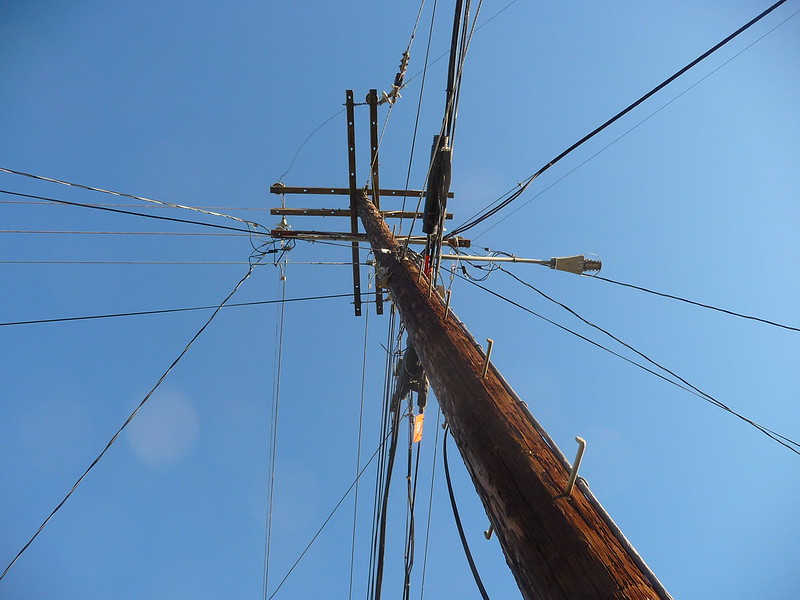
New Taxes On Tech Companies Won’t Fix USF
By James Erwin
The Universal Service Fund (USF) is in trouble and has been for some time. Its current funding mechanism does not raise enough revenue to consistently support the outlays demanded by the programs it funds, and reform is badly needed. Sadly, but unsurprisingly, some in Washington want to treat what are ultimately problems of design, eligibility, and duplication as a revenue problem and simply raise taxes to meet future shortfalls, while the better path would be to consider overhauling or even scrapping the program altogether.
The Universal Service Fund was originally established by the Communications Act of 1996, replacing the old long-distance carriage fees used to subsidize telephone service for all Americans, paid for by a “fee” on your monthly phone bill that is effectively a tax imposed on carriers by the FCC and passed on to you. In the nearly three decades since, traditional bureaucratic mission creep has grown the USF’s distributions to cover all manner of telecommunications services, including internet service for local libraries, schools, and eventually grew to subsidize whole local broadband networks, in addition to the Lifeline program for phone service. Some now call for USF to support broadband access for low-income households. Whatever its current uses, the USF tax is not sufficient to cover all these outlays and does not bring in consistent revenue as customers drop in and out of phone plans.
The answer to the problem is not to apply fees to new contributors. As with our annual budget battles, most Democrats choose to see this as a revenue problem. An unsustainable program cannot cover its obligations? Just raise taxes, no need to look at reform. Even though this program was meant to subsidize phone service for low-income Americans, paid for by fees from others, we can just expand the fees to apply to edge providers of content and ISPs. Don’t worry about the $65 billion we’re spending to expand broadband to rural areas and subsidize access through the Affordable Connectivity Program (ACP). Surely taxing broadband providers won’t discourage investment! And never mind that phone carriers already pass the cost of USF fees onto consumers, so this will make your internet bill go up too, just give the feds more money and that will fix everything.
From the Republican side, the answer seems increasingly to be “just tax big tech.” No less a figure than FCC Commissioner Brendan Carr, with whom we almost always agree, has pointed to tech companies as the solution to fund these obligations, calling them “free riders” for benefitting from USF subsidies to consumers while not contributing. But this overlooks the fact that tech companies offer the services that people actually use the internet for. Charter might provide your internet service, but you only pay them so you can have access to Google, Netflix, Amazon, and thousands of other sites and apps that are actually useful. Without the services the tech companies offer, no one would pay for internet service for the government to subsidize in the first place. And again, the fees applied to tech companies will be passed on to you the consumer anyway in terms of either higher prices or more aggressive data monetization.
Sadly, the “tax big tech” crowd, who are usually conservatives looking for spending reforms to balance the checkbook, are on a punitive expedition. Despite ample evidence that government jawboning at the behest of progressive NGOs was the real cause of the rise of censorship on social media, some conservatives remain stuck in 2020, blaming successful American companies for the security state’s overreach. Surely, we can both reign in government agencies engaged in censorship while imposing fiscal discipline on USF that won’t rase taxes on successful American companies?
As mentioned above, there is another broadband subsidy program, the ACP, which unlike USF distributions functions as a voucher for individual consumers. Compared to the 130 or so other broadband programs, ACP is the most responsive to market forces since, like EBT or school choice, it allows the beneficiaries to take their dollars wherever they please. It is also funded by general revenue approved by Congress and not by an arbitrary fee imposed by an unelected federal agency. If oversight is stronger and market forces are encouraged under ACP, then perhaps we should scrap USF and permanently fund ACP.
Short of eliminating the whole scheme outright, Congress should at the very least consider divesting USF of most of its broadband work and return it to just the Lifeline phone service as originally intended, eliminate most other broadband programs, and rely on the Broadband Equity, Access, and Deployment (BEAD) program for deployment and ACP for access. Ideally, the federal government should get out of the broadband game entirely, but if it must be involved it should at least try to avoid raising taxes to pay for unwieldy programs that can’t meet their own obligations. Scaling back state involvement in the market will restore the original funding balance to USF; expanding it will only keep this spiral going while raising prices for consumers and punishing businesses for their success.